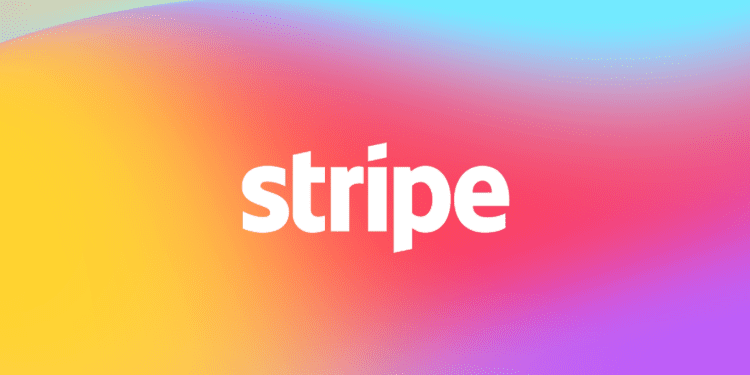- Stripe customers to exchange dollars for cryptocurrencies.
- The financial services company introduces an embeddable and customizable fiat-to-crypto onramp.
- The company increases DeFi accessibility to mainstream consumers.
According to an official blog post, global payments processing company Stripe has enabled a fiat-to-crypto on-ramp, allowing customers to exchange dollars for cryptocurrencies. The news was confirmed in a status report on Stripe’s official Twitter account.
“Introducing a customizable and embeddable fiat-to-crypto on-ramp: https://stripe.com/blog/crypto-onramp…“
Stripe is going live with its fiat-to-crypto on-ramp, making it possible for customers to exchange dollars for crypto. According to the announcement, the innovative transactions solution is billed as a customizable widget that can be directly integrated within different decentralized finance (DeFi) platforms.
Notably, today, the most common way to on-ramp fiat-to-crypto is by purchasing cryptocurrencies via a centralized exchange such as Coinbase, Binance, and Kraken. Crypto exchange FTX would also qualify for the list, but it has since deceased, with former CEO Sam Bankman-Fried filing for bankruptcy on November 11. To participate in DeFi, after that, you would have to transfer the crypto to a third-party wallet.
As an established payments processor for top-tier Web2 companies like Apple and Walmart, the decision by global payments processing company Stripe to plunge deeper into the crypto sphere will undoubtedly be an enabler in increasing the accessibility of DeFi to mainstream consumers. This is primarily when centralized exchanges (CEXs) are under enhanced scrutiny.
In the blog post, Stripe product manager Jennifer Lee acknowledges that getting end users on-chain is difficult. Putting it plainly, funding the wallets of end users with crypto requisite for interfacing with Web3 applications is a daunting task, and only a few projects have that capability. Lee also adds:
“Developers must wrestle with rampant fraud; navigate complex KYC requirements; and still offer a seamless, high-conversion payments experience so their users can use their Web3 applications.”
The blog post, however, assures that Stripe will handle tasks on ‘Know Your Customer (KYC) requirements, payments, fraud, and compliance.
Stripe Joins Kado in Payments Innovation
Noteworthy, using DeFi services without a centralized mediator is not easy, with minimal ways existing. With the new fiat-to-crypto on-ramp feature by Stripe, the payment processor will compete with non-custodial exchanges like Kado.
Kado recently upscaled, bringing its on-ramp and off-ramp services to Ethereum, Solana, Avalanche, Cosmos, and Axelar networks. Welcoming the new market peer and, therefore, market rival, Kado CEO Emery Andrew said in an email, “It is great to see more established payment companies coming into the space, which has been part of our thesis all along.” Andrew also added:
“Payments innovation has always been one of the no-brainer use cases for blockchain and cryptocurrency.”
Notably, Kado was once part of the old Terra ecosystem. Initially, it launched a terra UST native on-ramp that allowed direct transfers from bank accounts to wallets within a maximum of five minutes. For the moment, Stripe’s new offerings will only be available to United States customers. Plans to make the product available to additional countries are underway.
So far, several companies are already collaborating with Stripe for its fiat-to-crypto on-ramp offerings, including but not limited to NFT marketplace Magic Eden and social NFT platform Nifty. The most recent member of the partnership is the decentralized exchange Orca.
Solana-Based Market Maker Orca Integrates Stripe for Fiat-To-Crypto Transactions
In a new integration with Stripe, the Solana-based automated market maker (AMM) Orca has introduced fiat purchases and fiat-to-crypto transactions.
According to Orca, the integration will power its new fiat-to-crypto on-ramp and, in so doing, make DeFi more accessible to users within and outside the current ecosystem. The AMM said, “This new integration enables fiat purchases and fiat-to-crypto transactions.”
Accordingly, users can now use fiat currencies to buy Orca blockchain’s standard native SPL tokens, including USD Coin (USDC) and Solana (SOL). Orca co-founder Ori Kawn supported that the new integration will help create more comprehensive access to economic tools, saying:
“With this new integration, we hope to make participating in the DeFi ecosystem even more accessible to the entire Solana community.”
It is worth noting that the Orca integration headlines as one of the first blockchain-based integration from Stripe in its (Stripe’s) continued foray into the crypto space.
In March 2022, Stripe announced fiat support for cryptocurrencies and NFTs, alongside collaborations with FTX, FTX US, Blockchain.com, Nifty Gateway, and Just Mining, to launch a cryptocurrency business suite. Later in April, Stripe signed another collaboration with Twitter to leverage the Polygon network to create a USDC-based payout program for creators.
The developments in payments innovation come amid market fears following the collapse of former powerhouse crypto firm FTX. The industry is still trying to pick itself up from the contagion and the effects of the extended crypto winter. Solana was among the most affected, with its native token SOL losing up to 32.4% on November 10.
Nevertheless, certain key players in the crypto playing field are still rooting for the Polygon ecosystem. Among those who have been most supportive is Polygon co-founder Sandeep Nailwa who has committed to continue building on the value of the Solana network.
Before Sandeep’s commitment, Solana revealed its roadmap at the Breakpoint 2022 event in Lisbon, featuring a critical partnership with Google Cloud. Polygon is among those who have congratulated Stripe for its exciting development.














